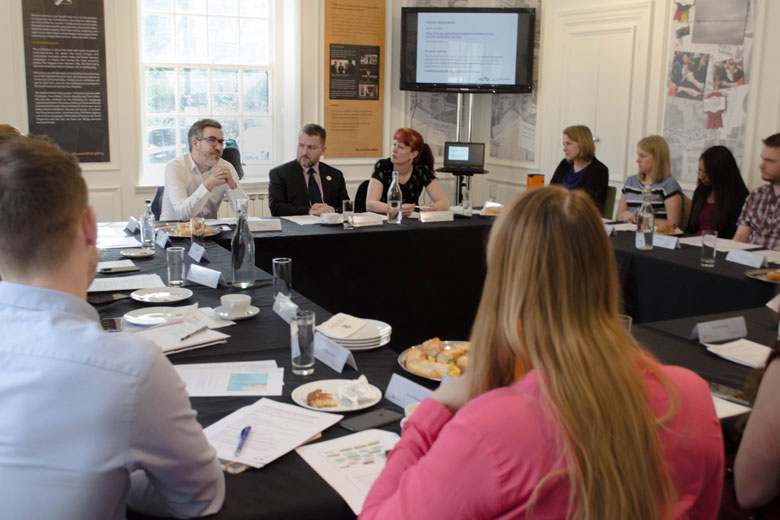
As part of Ellwood Atfield’s NCVO sponsorship programme, we hosted a breakfast event for campaigns and public affairs specialists working in the charity sector on the ‘theory of change’.
The National Council for Voluntary Organisations (NCVO) is the umbrella body for the voluntary and community sector in England, with over 12,500 member organisations across the UK.
theory of change principles
The second event in our series of training workshops included an interactive roundtable discussion chaired by NCVO’s Director of Public Policy and Volunteering, Karl Wilding, and kicked off by Sally Cupitt, Head of NCVO Charities Evaluation Services. Sally presented the Theory of Change and used case studies of where its’ use as a structured model has helped campaigning organisations to ensure effective outcomes and a focused approach to ensuring maximum impact through change. She stressed the importance of starting a plan with a focus on the “ultimate impact” and working backwards through outcomes, audience segmentation and tactics.
Sally talked through the process of clearly defining and planning the theory of change to an audience of 20 charity communications professionals from the likes of Barnardo’s, Bowel Cancer UK, RSPB and the Prince’s Trust.
What makes this approach different to the standard business plan?
Ultimately, it’s about a thinking process and is good for describing complexity as well as avoiding a heavy focus on tactical activity to create ‘noise’ for the sake of it. The importance of evidencing theories and eliminating assumptions is key.

From left to right: Pete Moorey, Which?; Karl Wilding and Sally Cupitt, NCVO.
The Chatham House Rules discussion saw attendees conversing about the benefits of using a theory of change approach to influence public affairs and communications strategy, and what opportunities there are for public affairs departments to influence how the rest of their organisation approaches its’ strategic goals. Organisations can spend vast amounts of money and resource on running high profile influencing campaigns which ultimately don’t achieve the long-term impact they desire. They can also act as a short-term distraction from focusing on long-term deliverables. Perhaps a shift in theoretical approach could help to avoid this?
principle applications
Pete Moorey, Head of Campaigns at Which? went on to discuss practical applications of theory of change for public affairs based on his own experiences of running influencing programmes. Pete stressed the importance of thinking about ‘what’ will lead to actions and genuine long-term behavioural change – rather than being driven by activities which may raise awareness and create discussion, but may not actually help to achieve the ultimate outcome.
useful resources
Visit the new impact section of NCVO’s Charities Evaluation Services for ‘How To guides’ to help you develop effective impact and evaluation practices in your organisation, including theory of change.
To find out more about how Ellwood Atfield can help you with interim & permanent recruitment needs within your team, please contact Jules Shelley on jules@ellwoodatfield.com.


